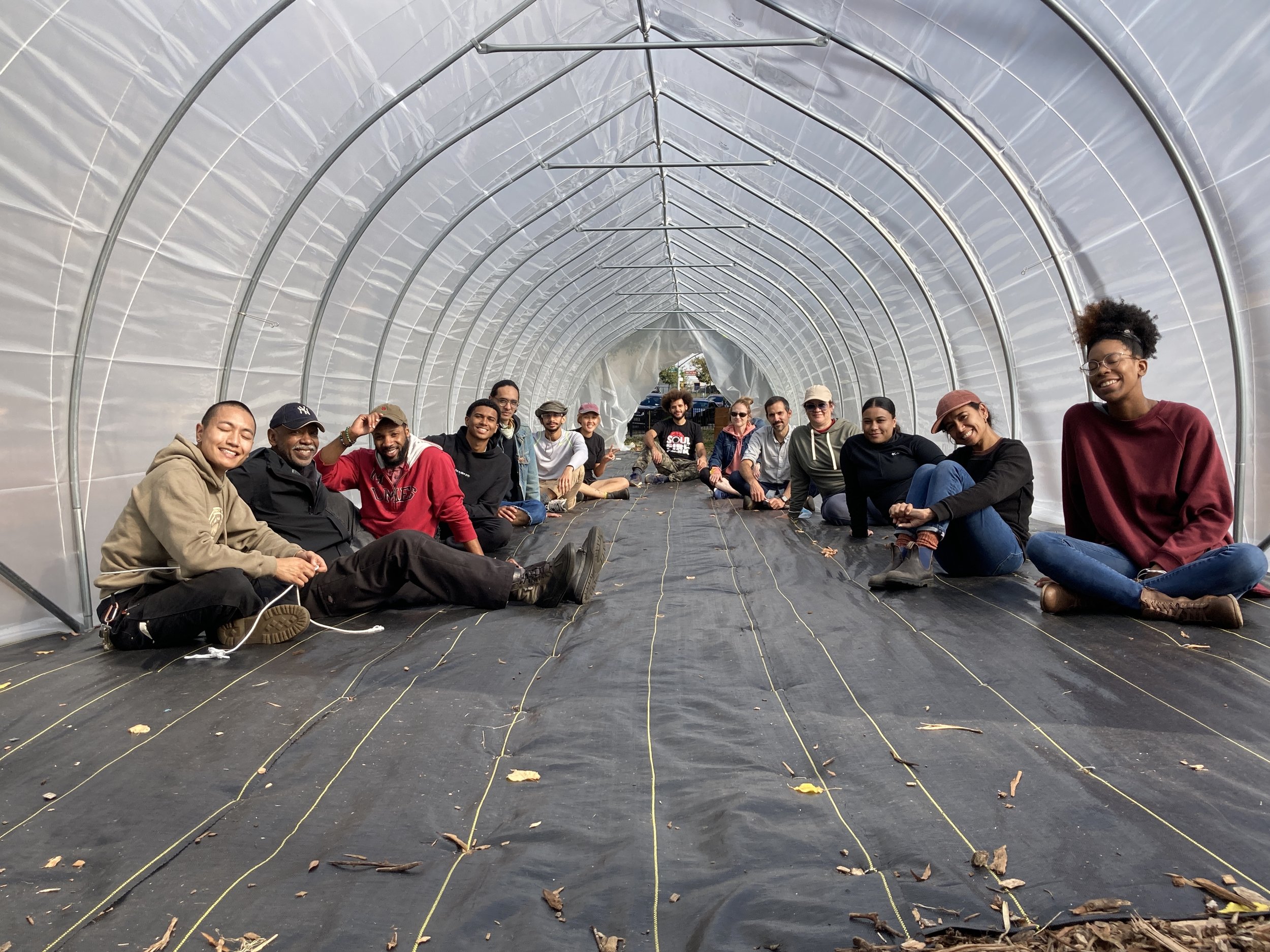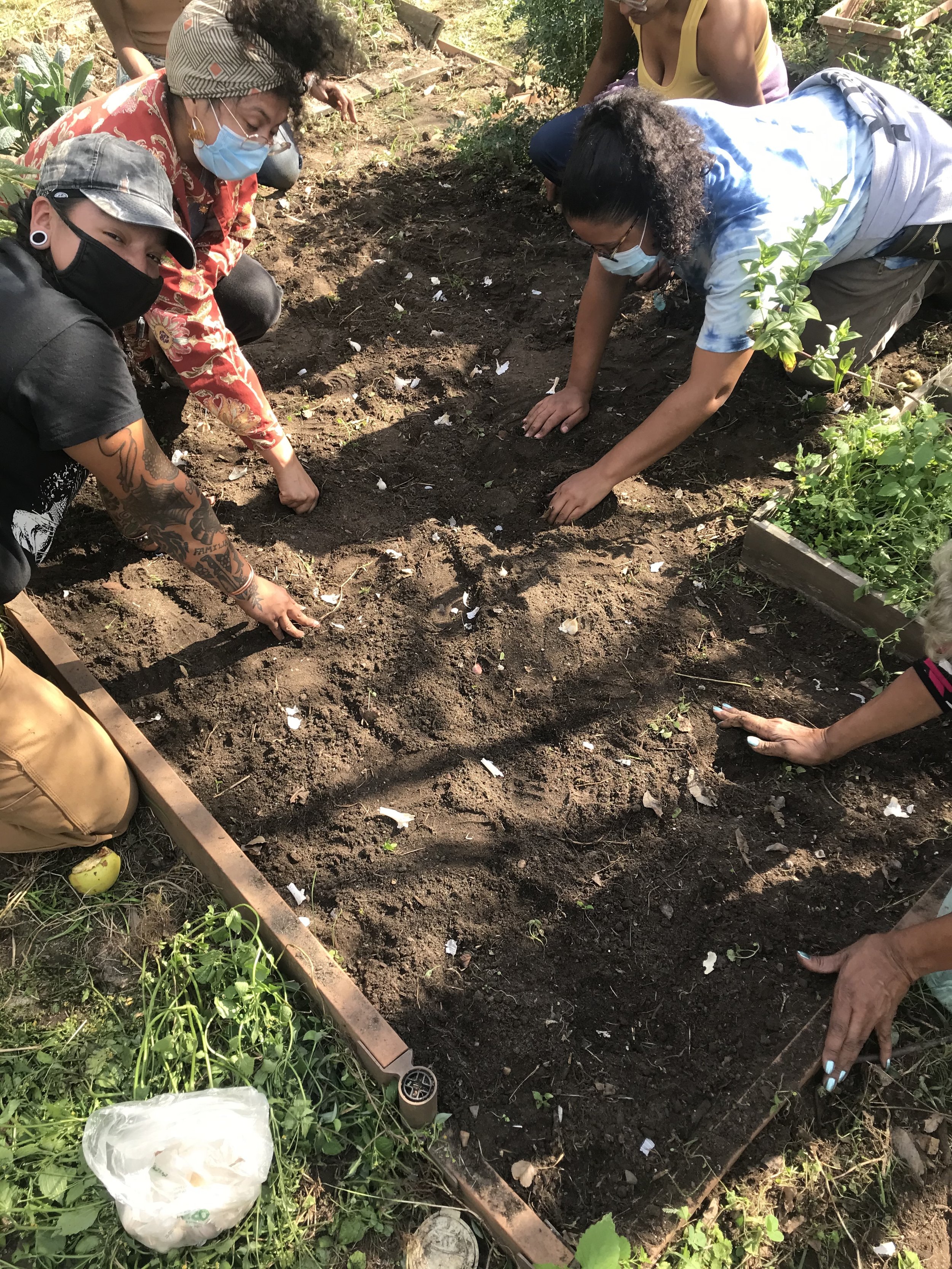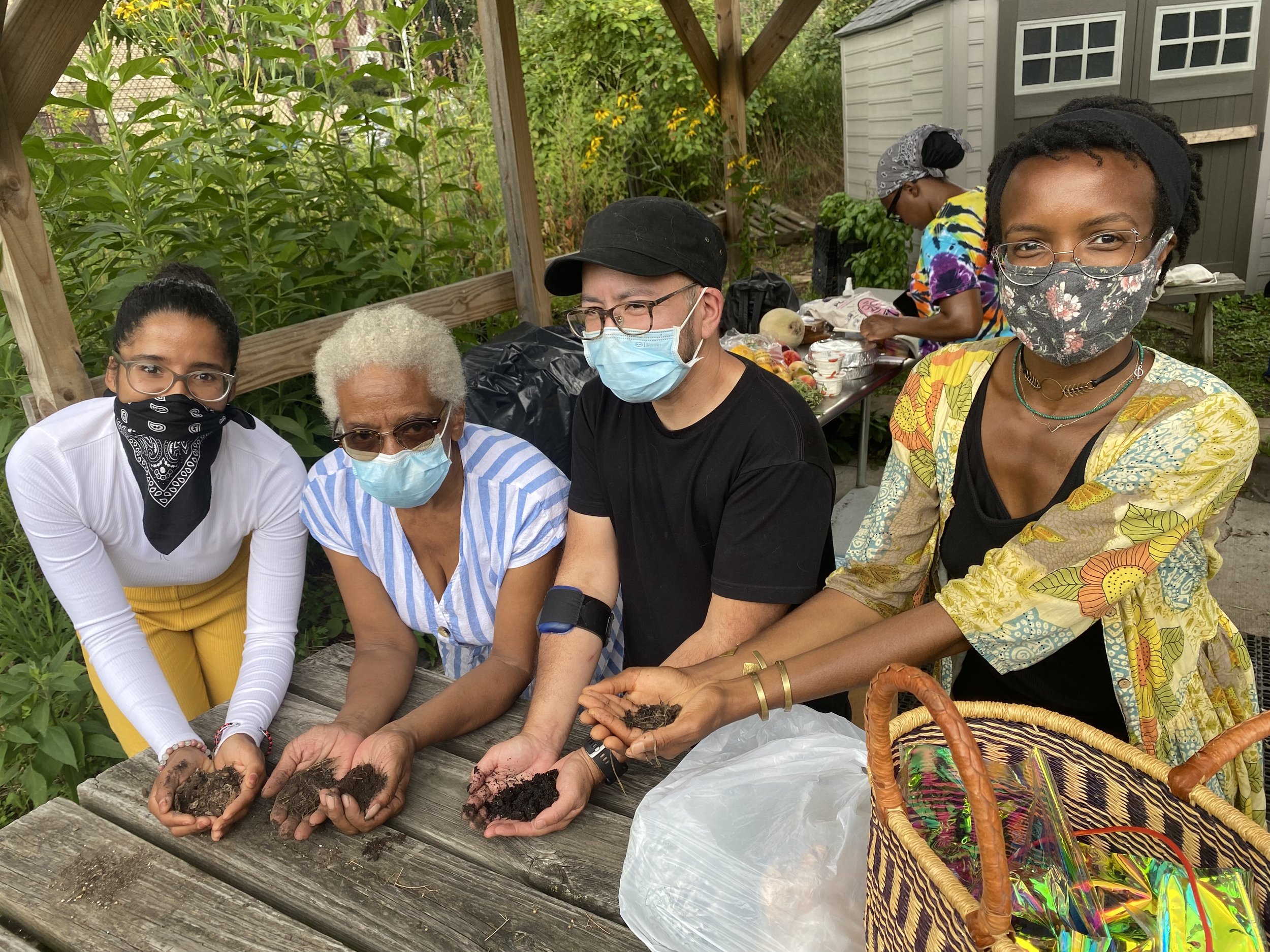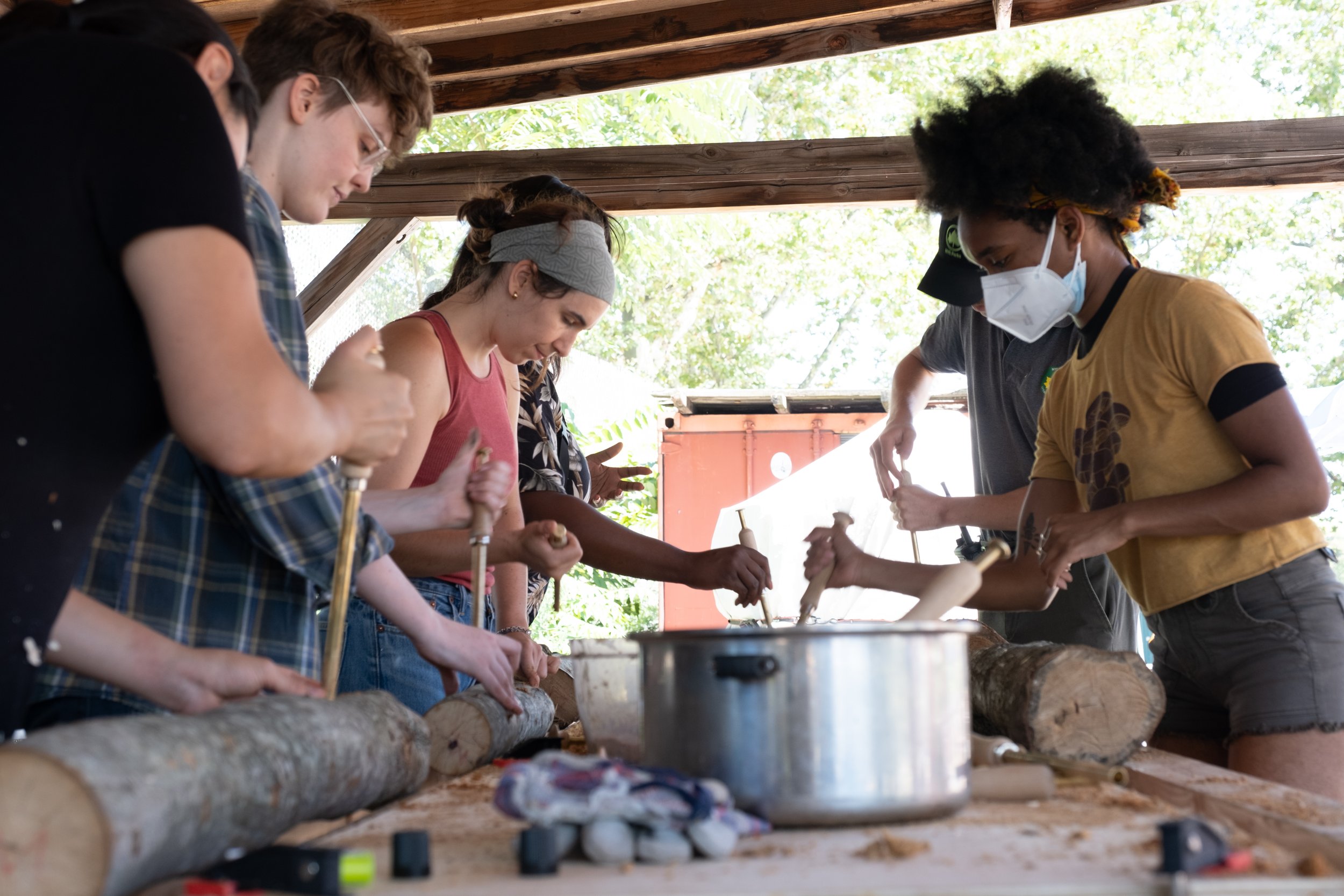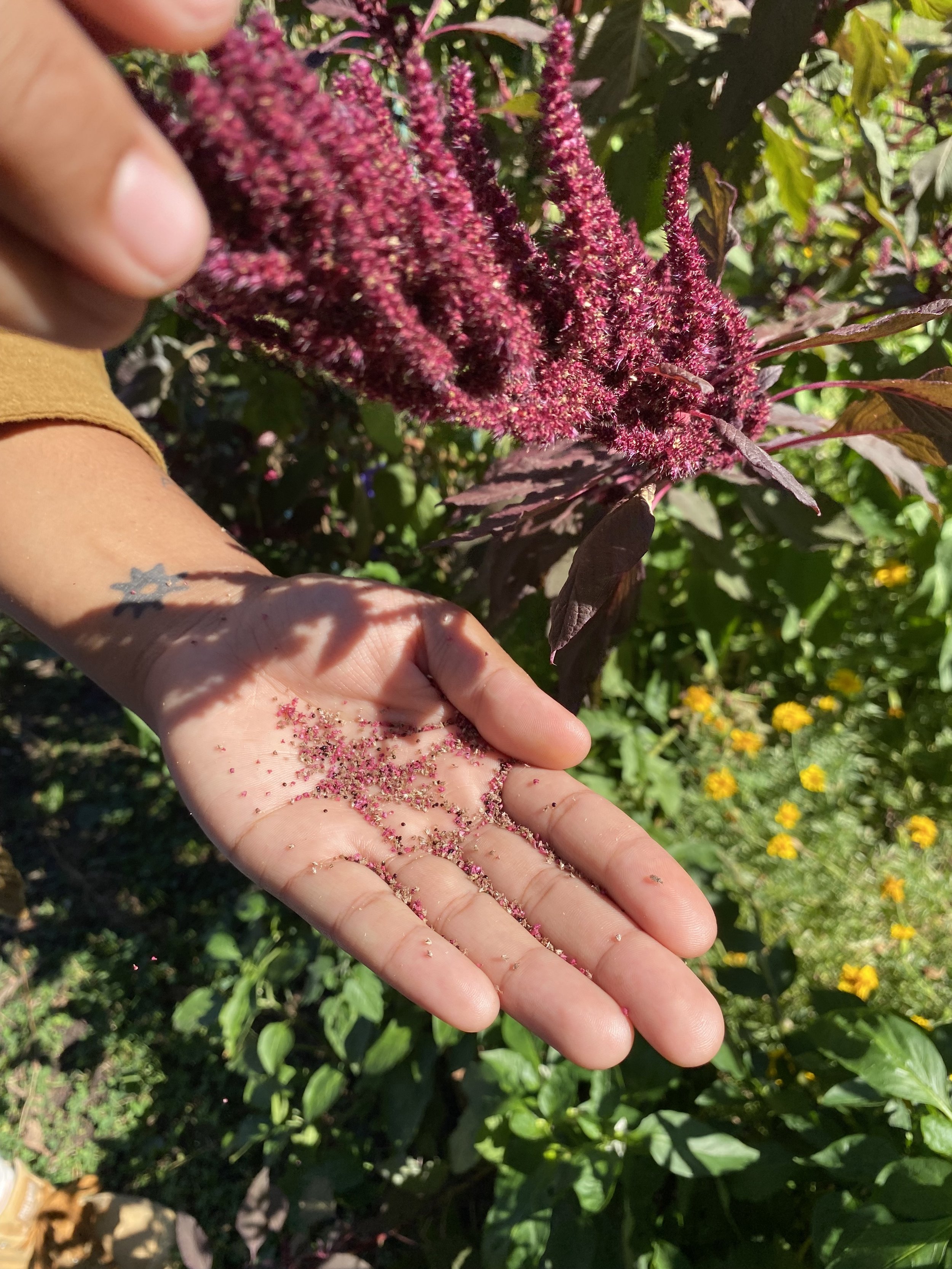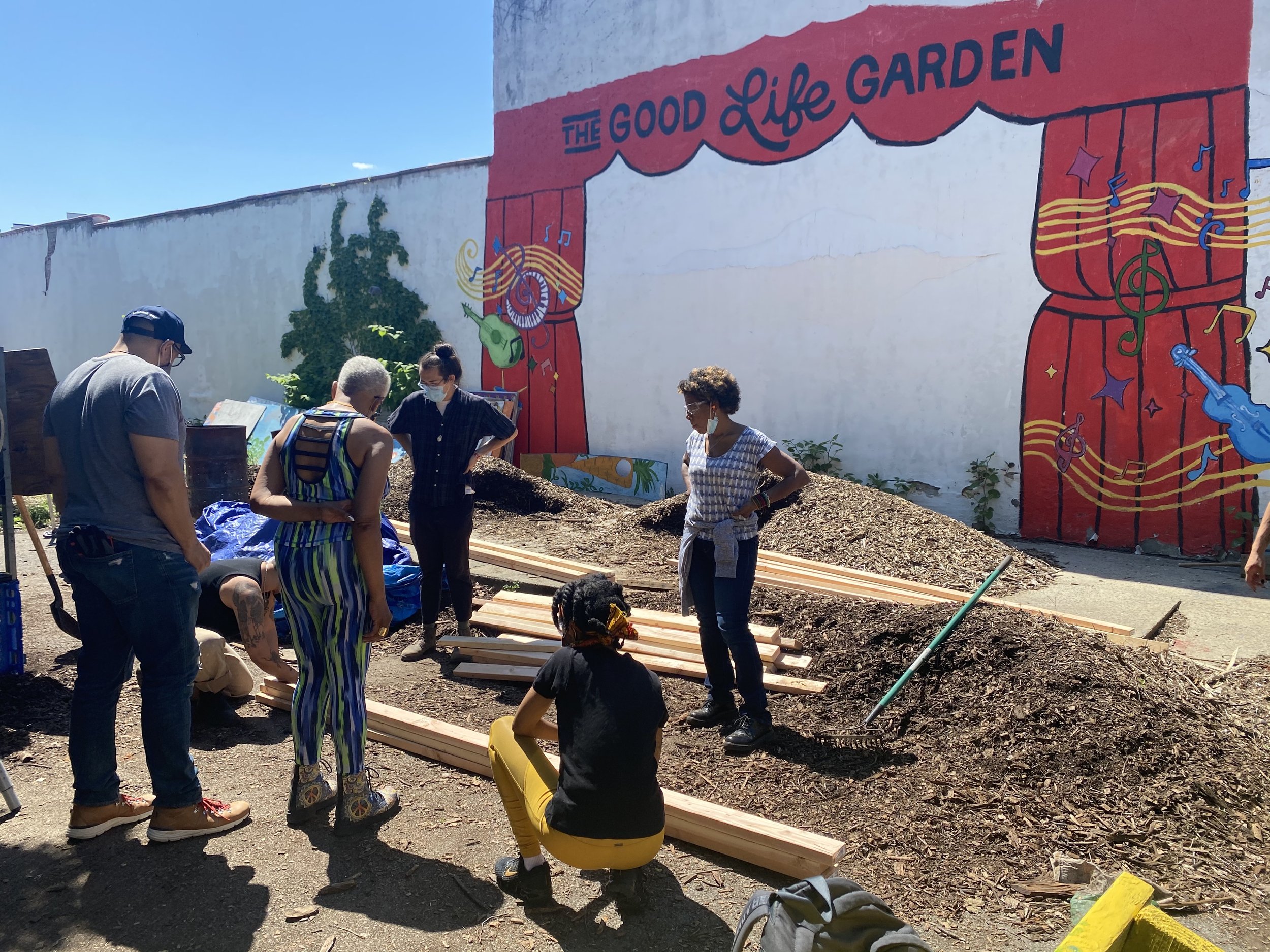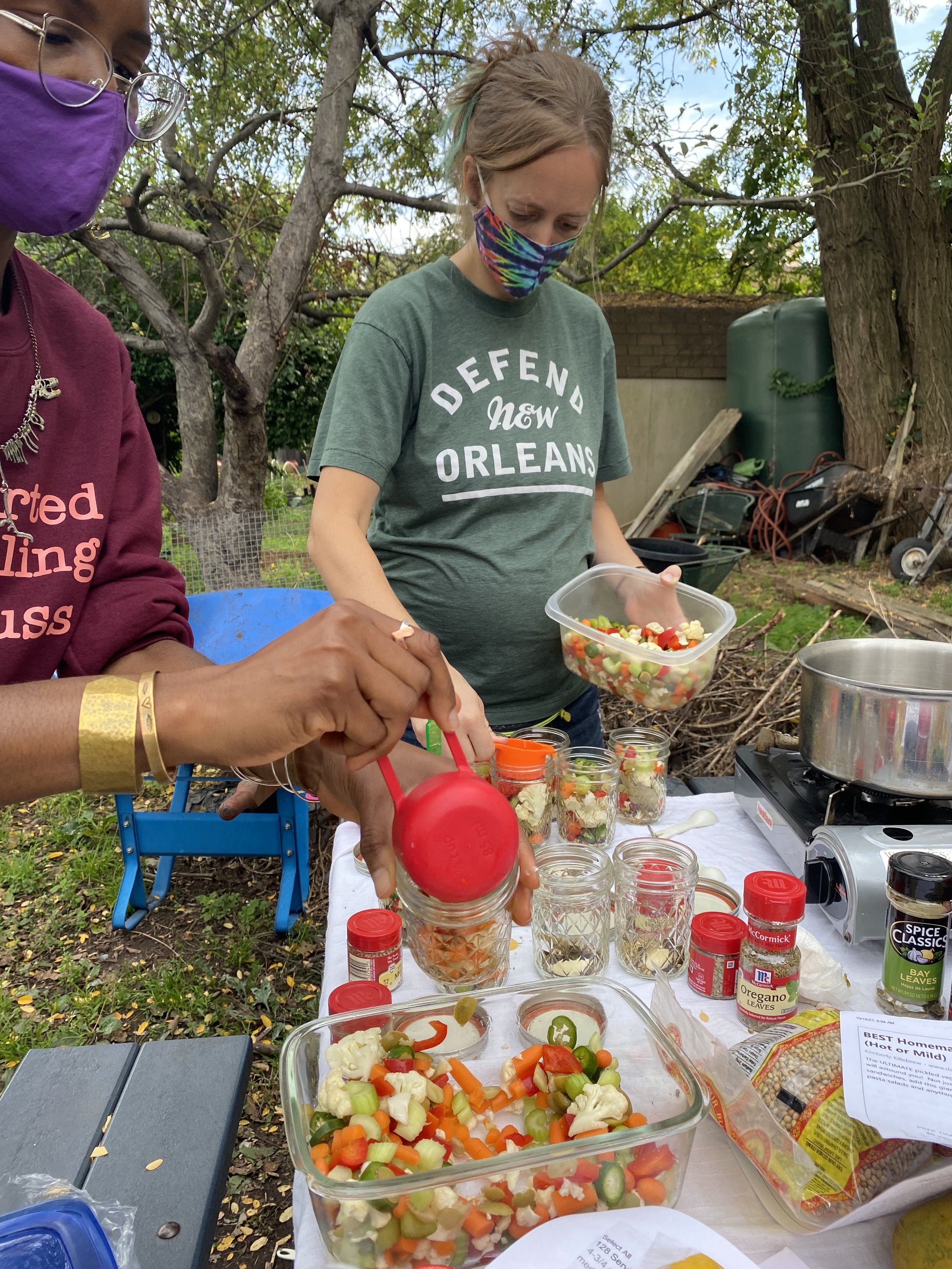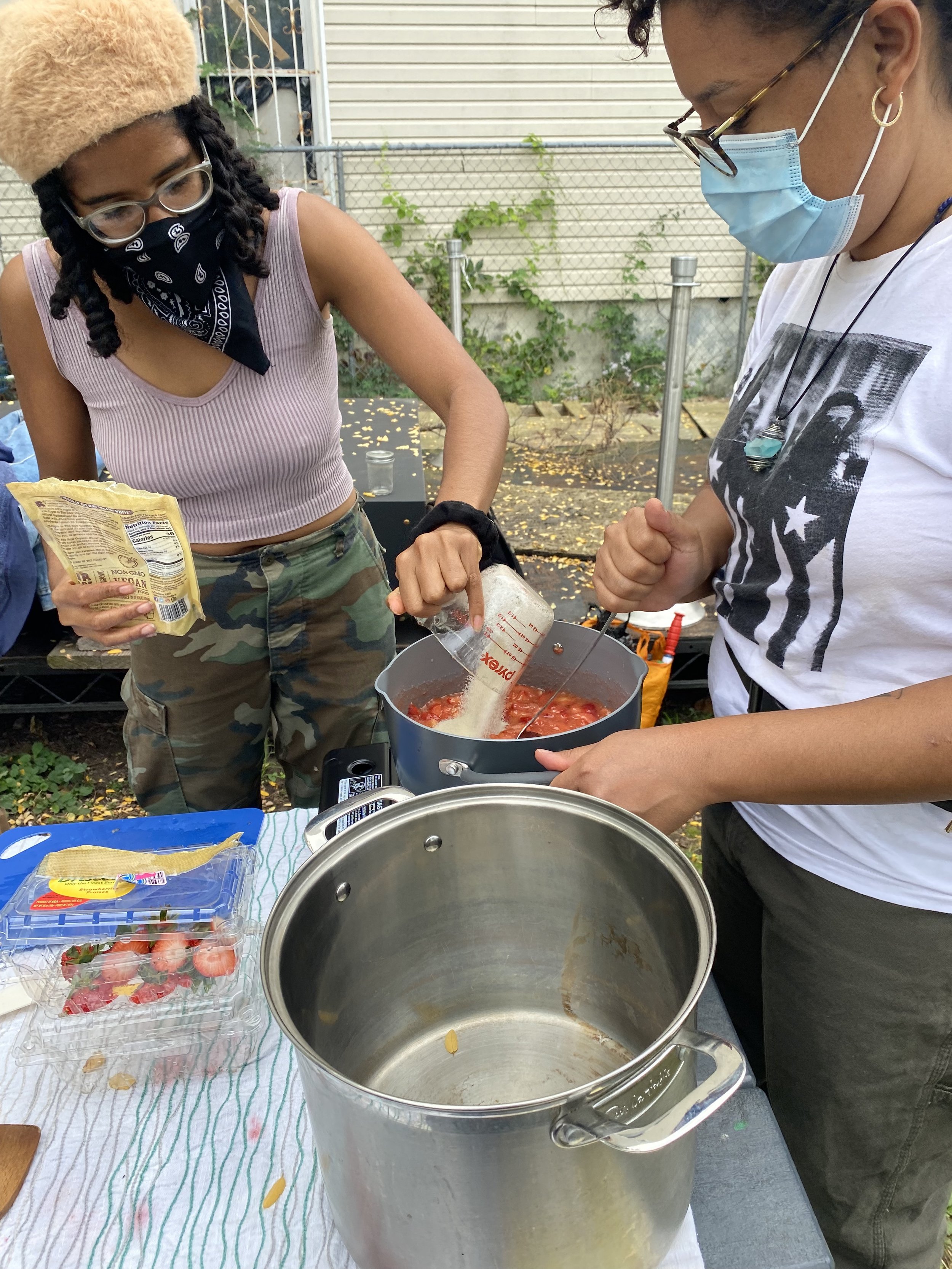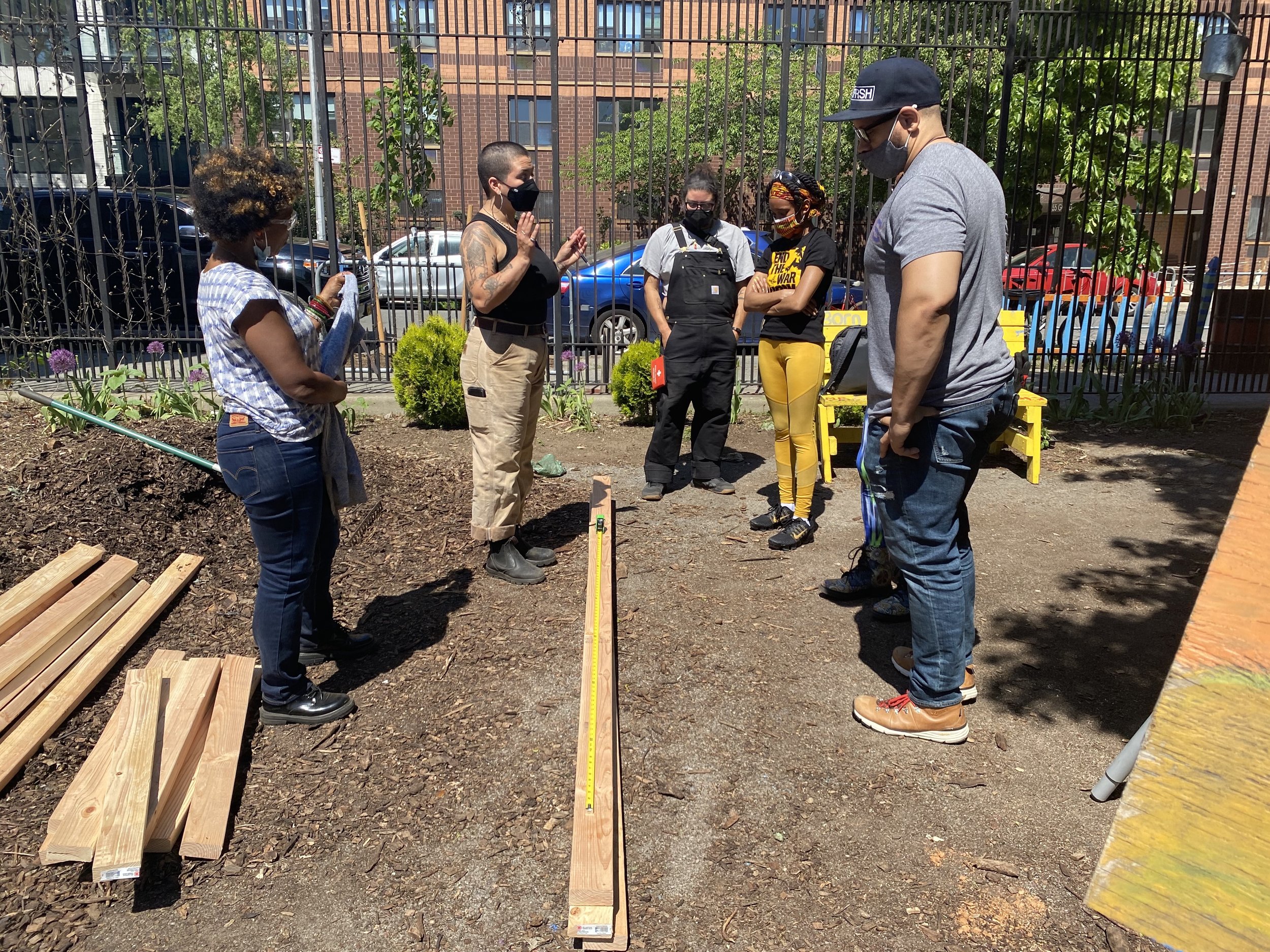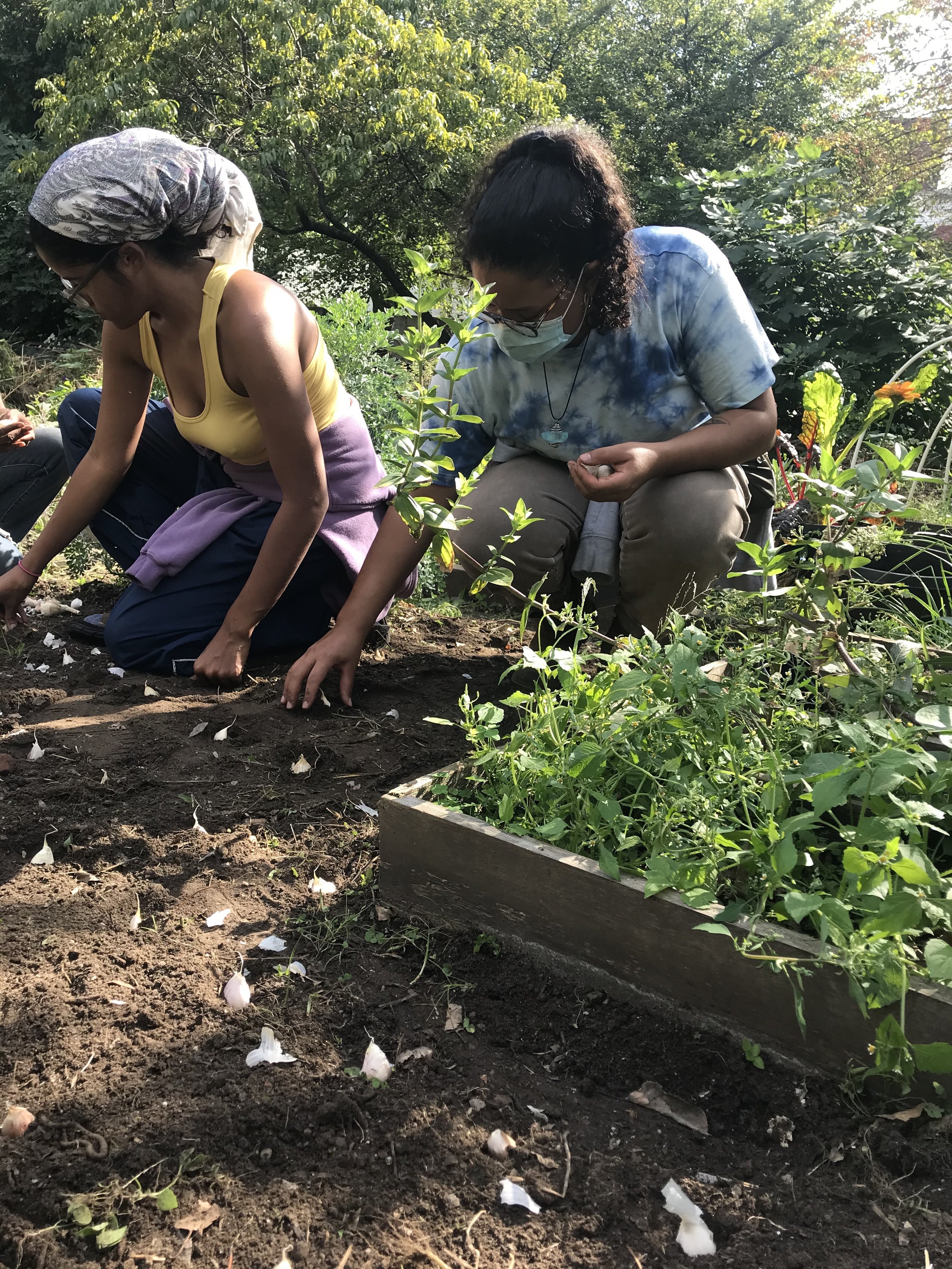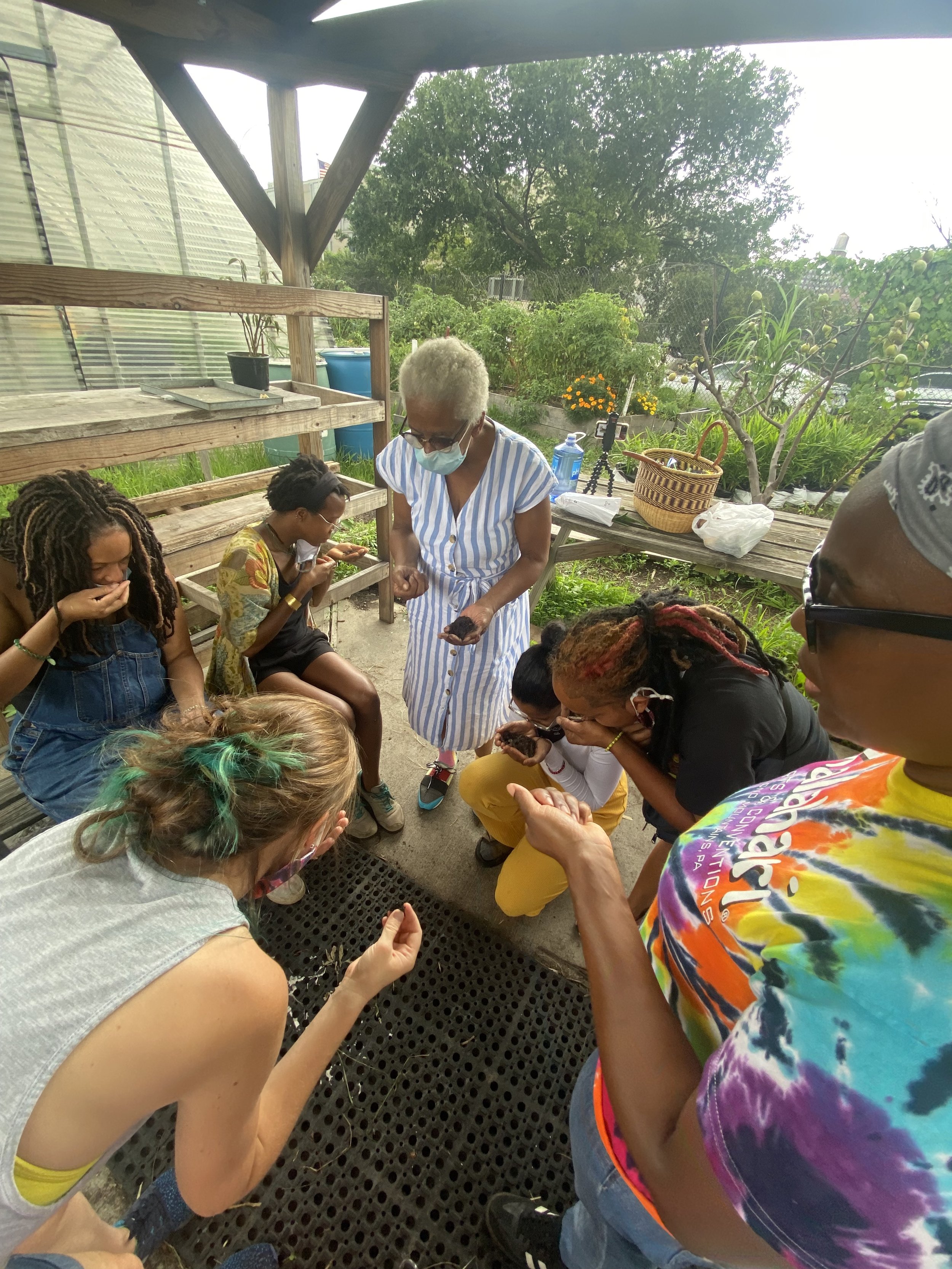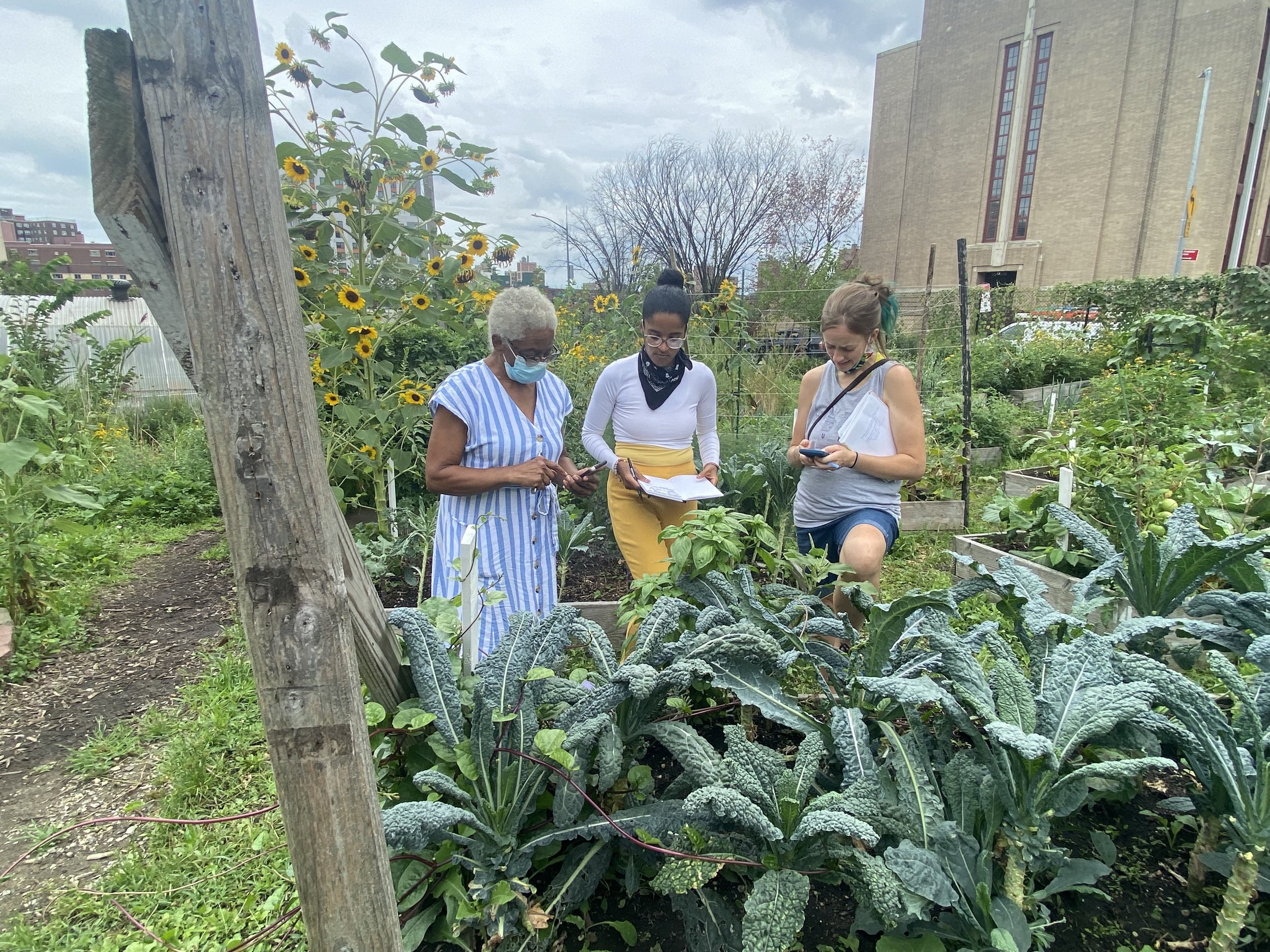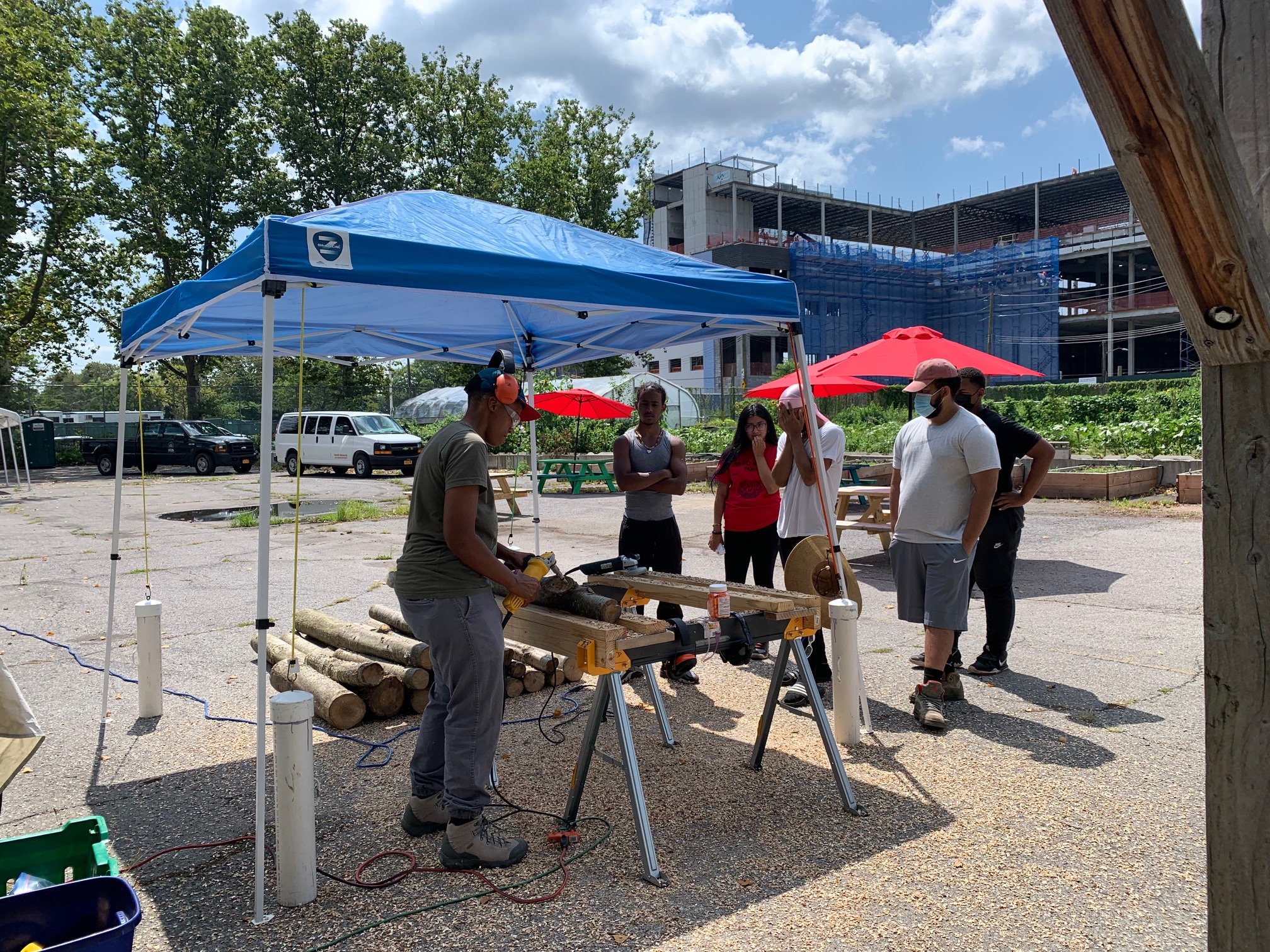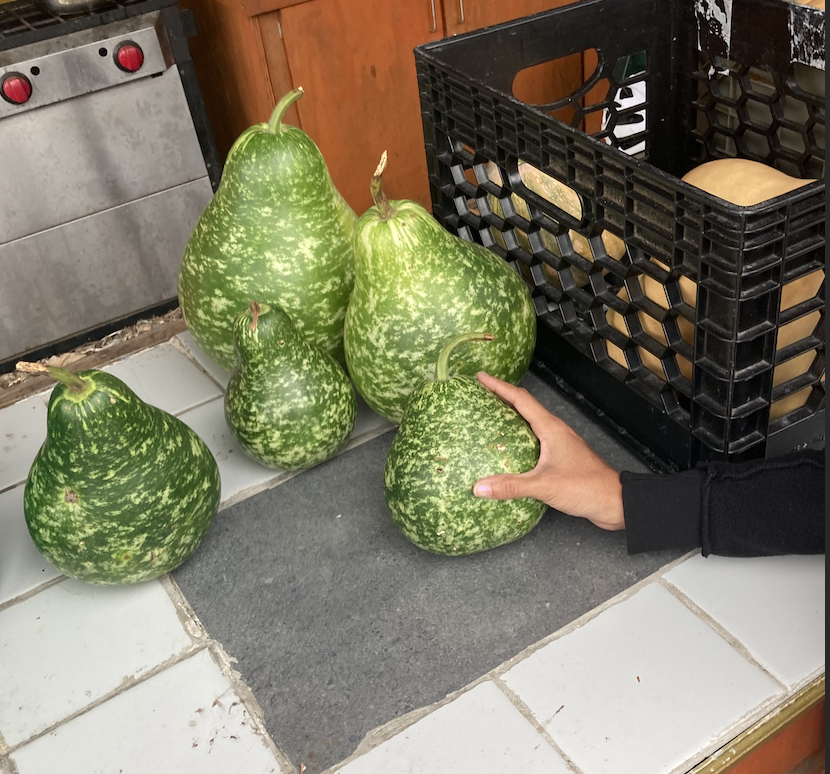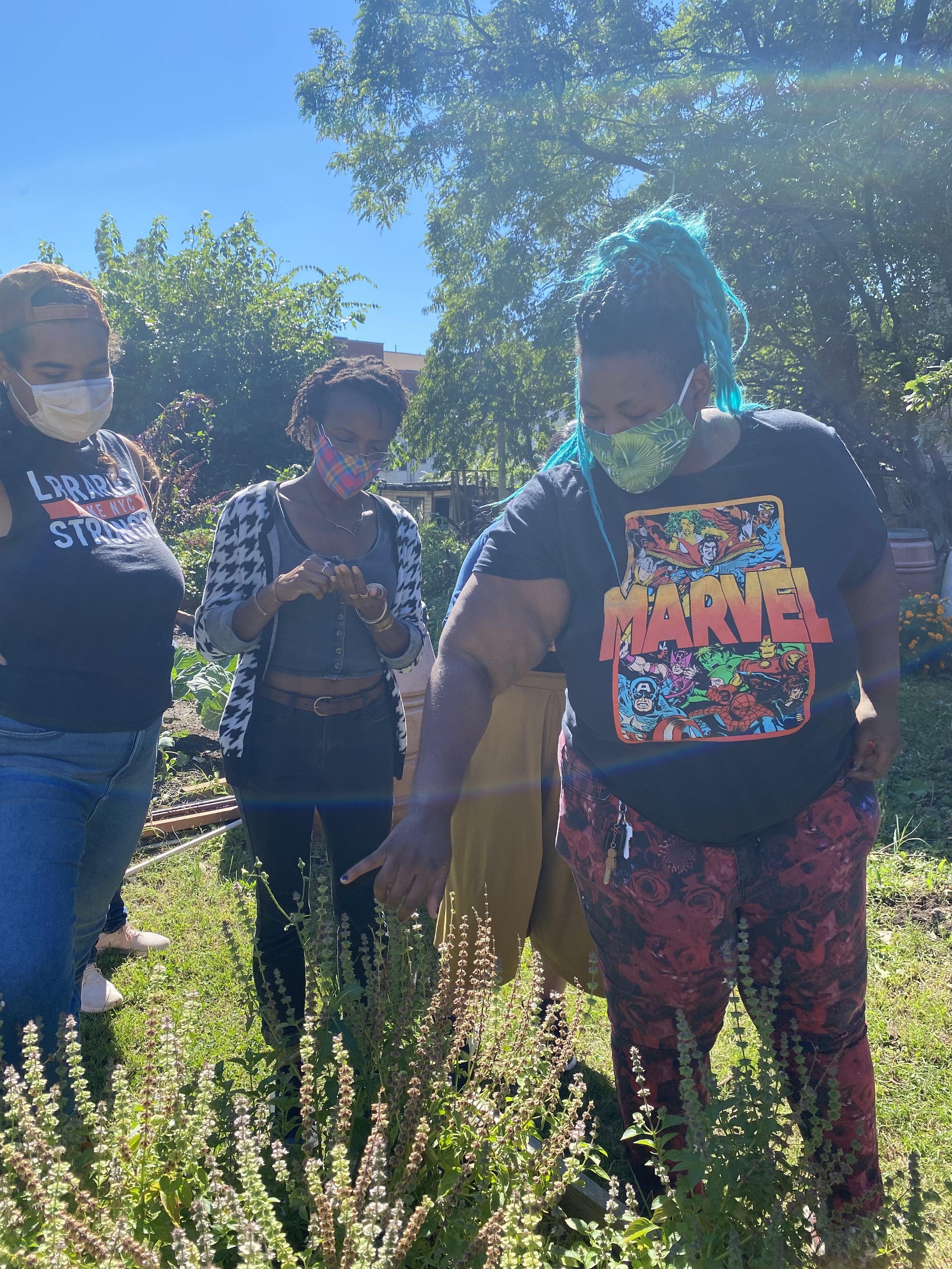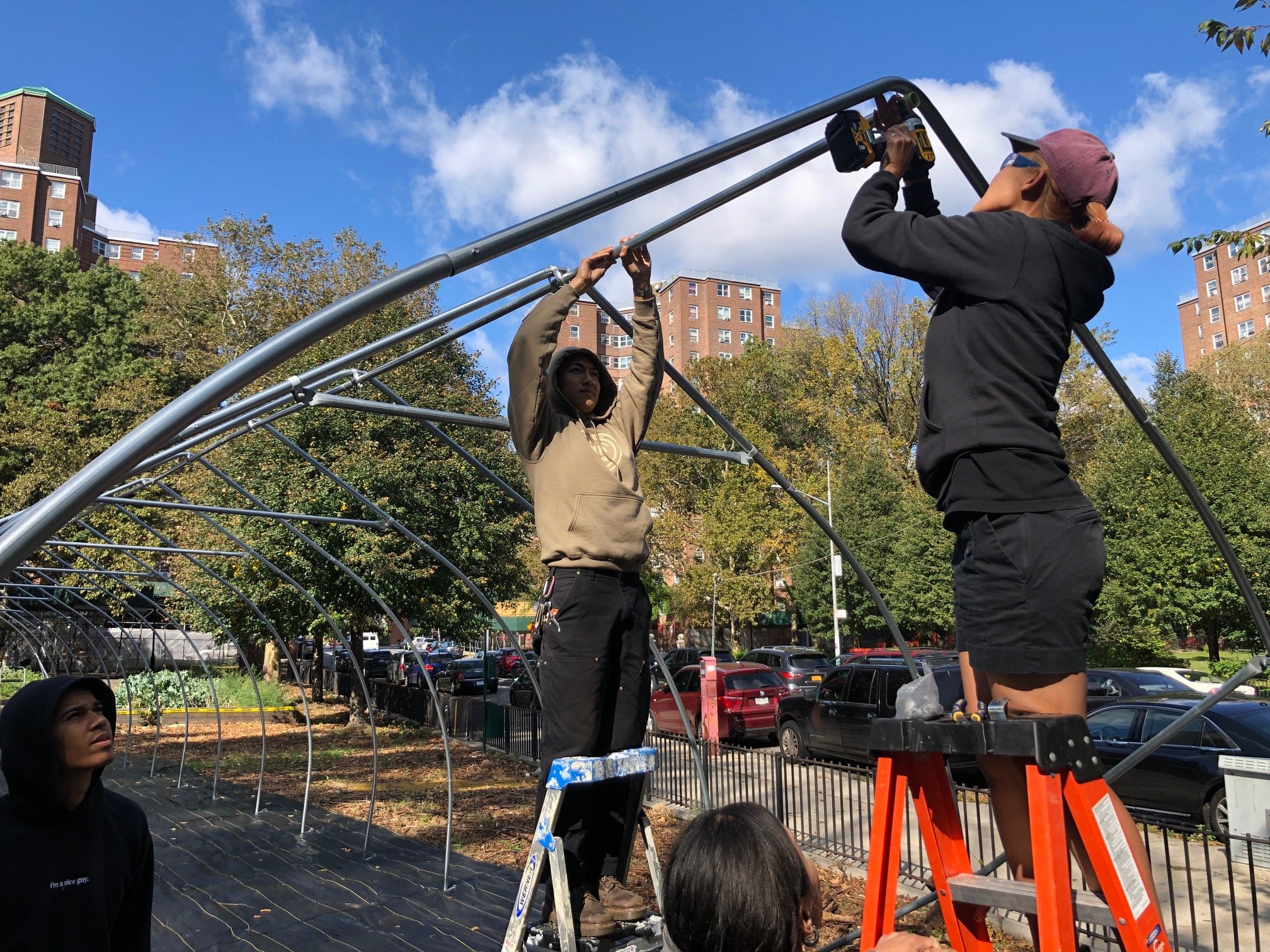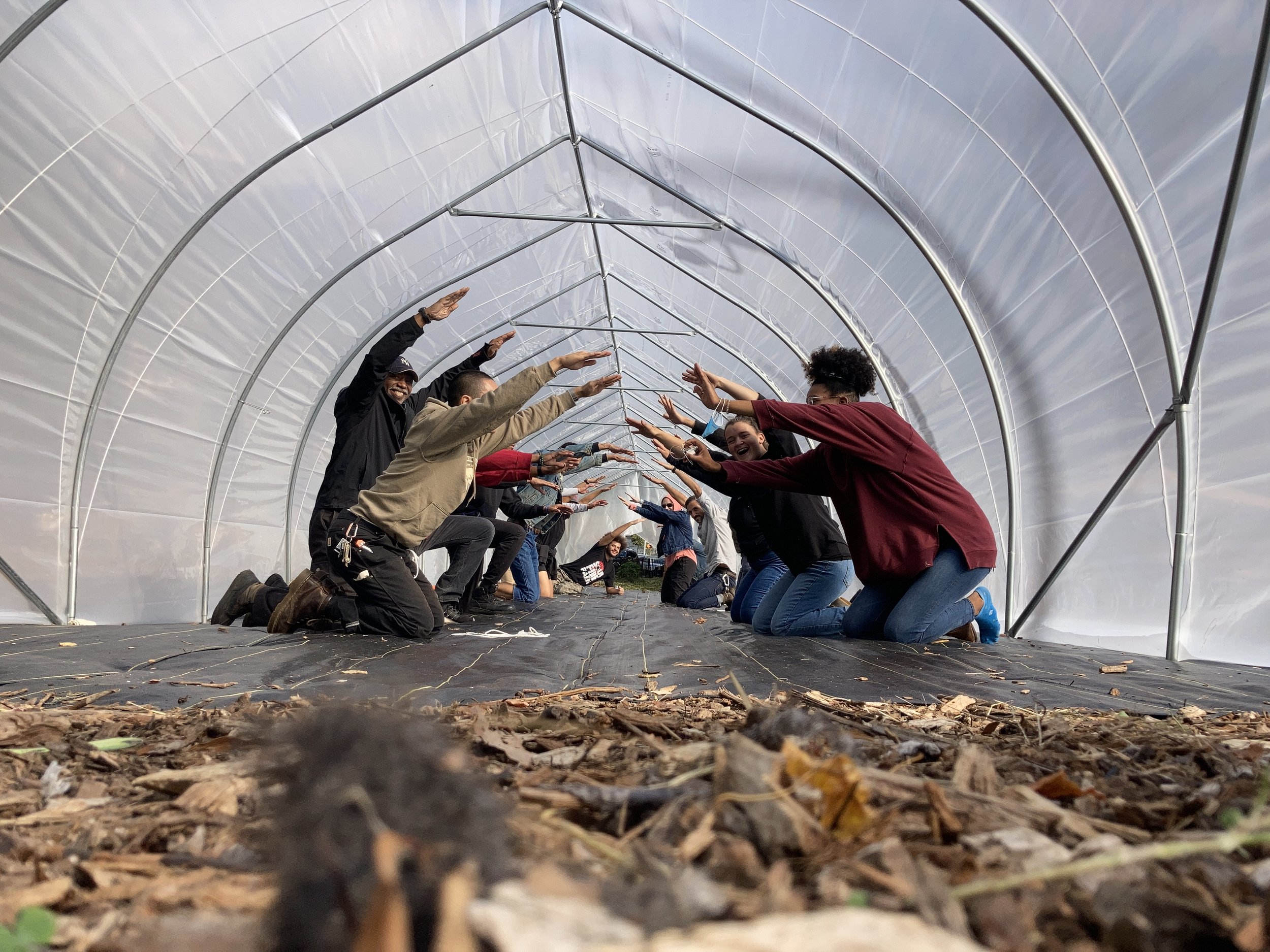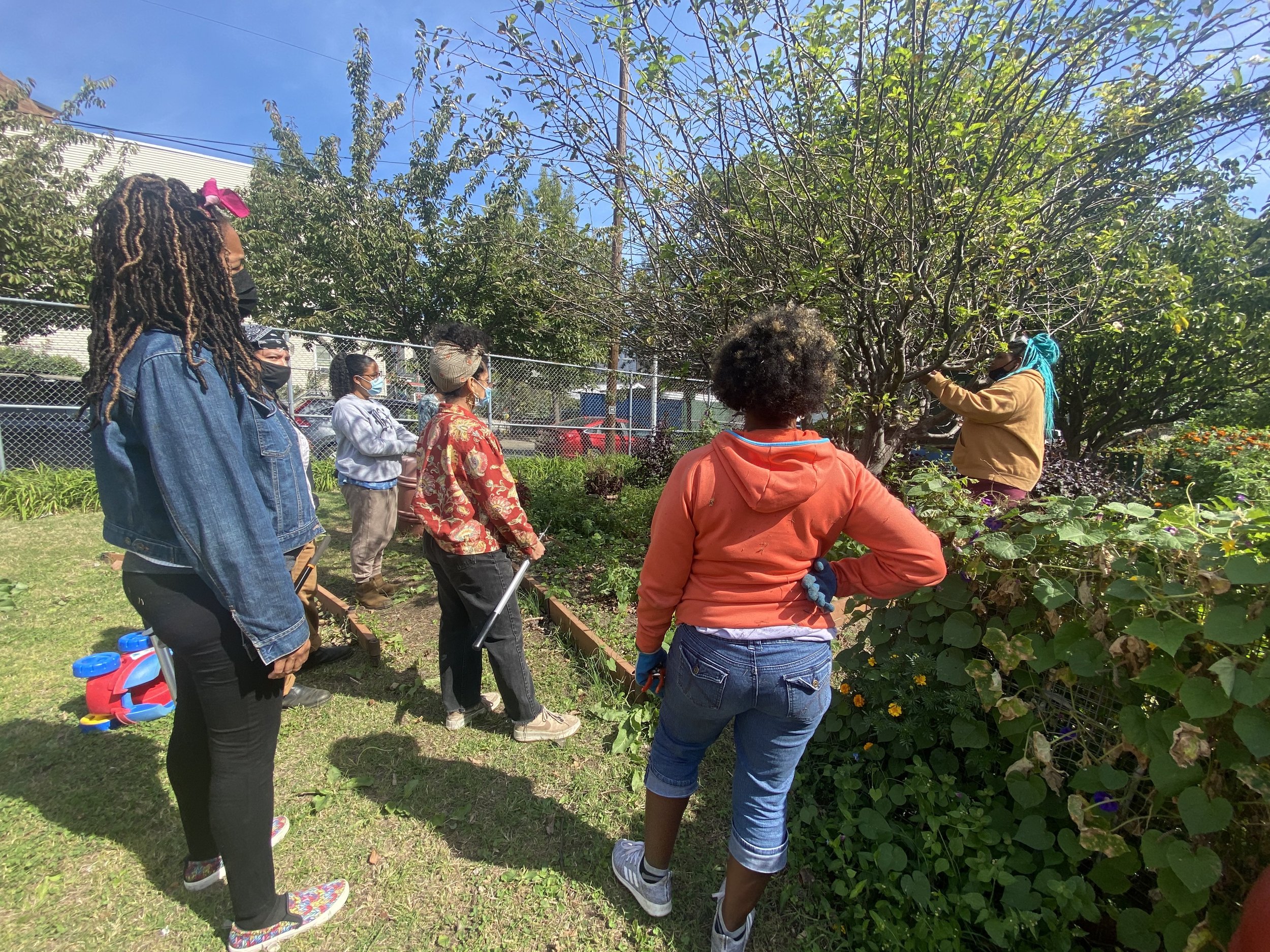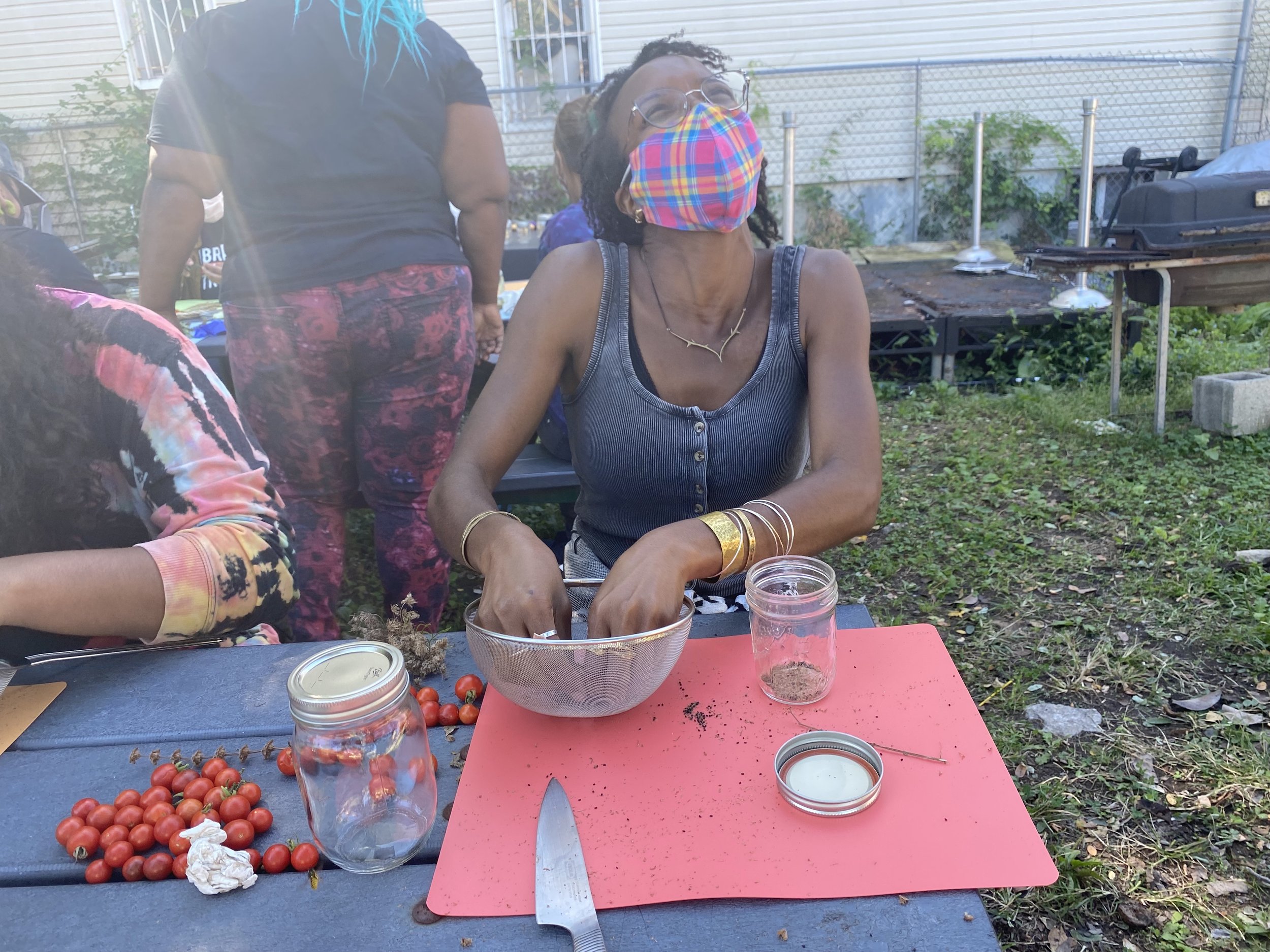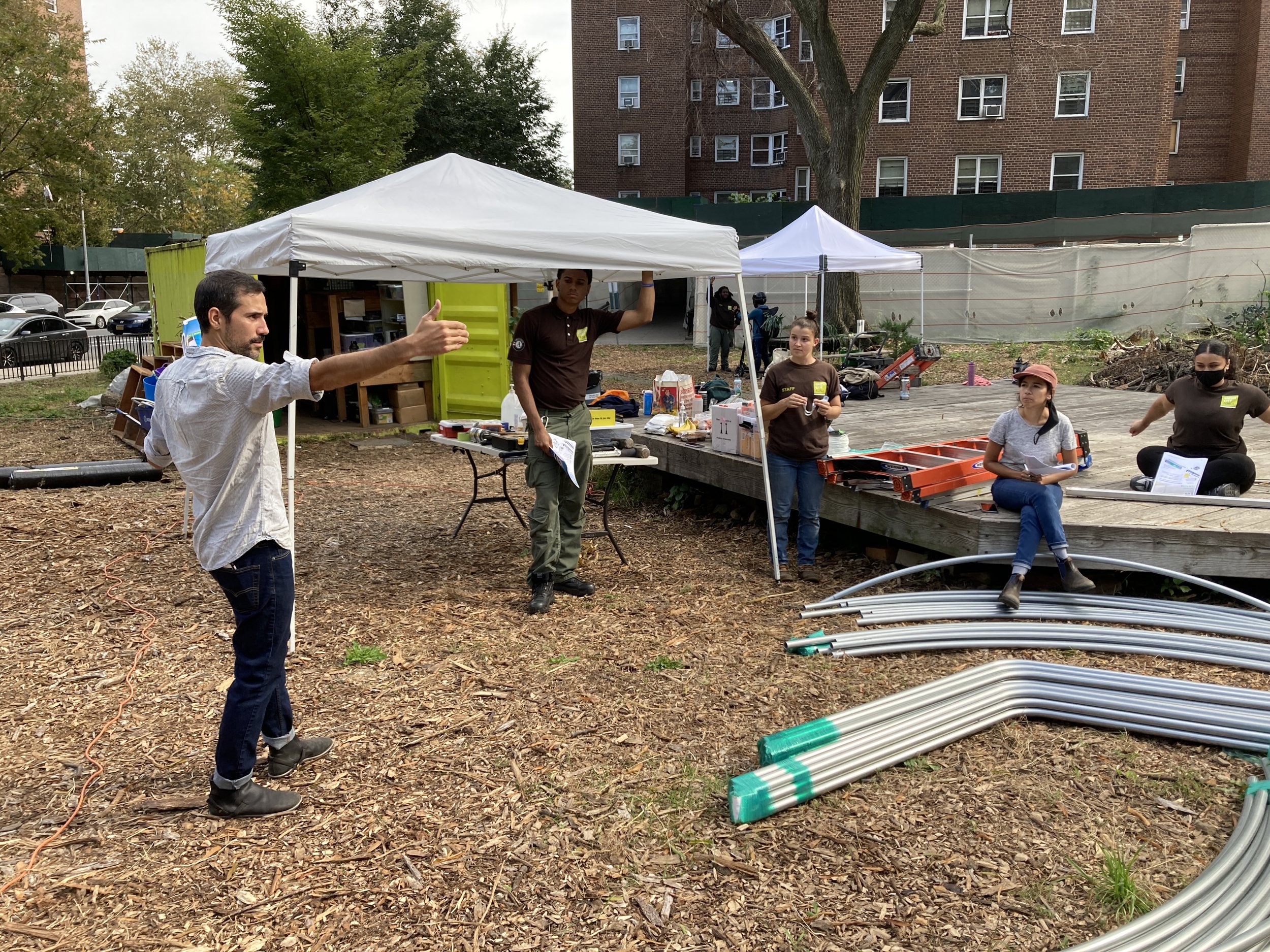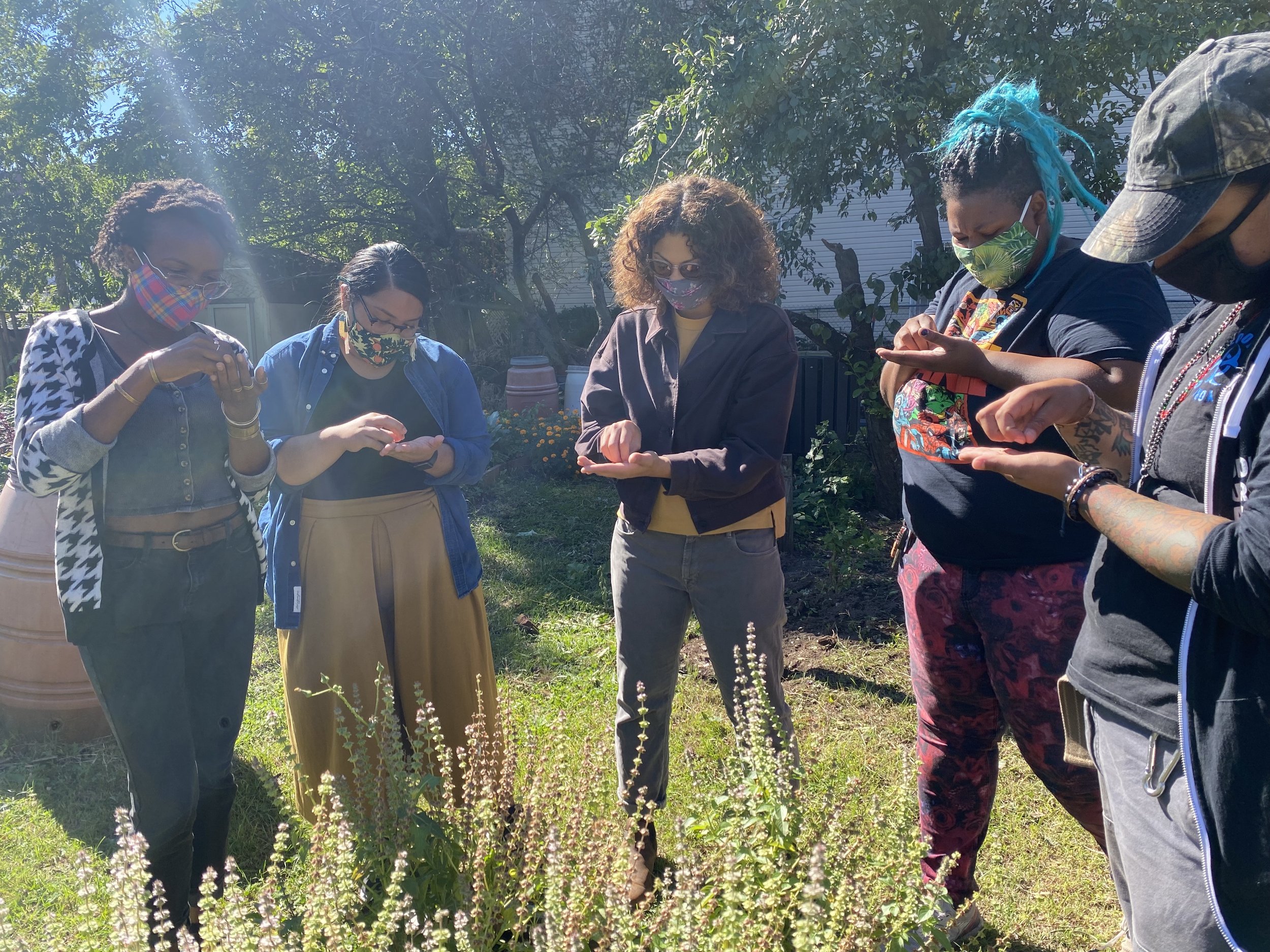Citywide Program
The Citywide Program has historically been a 1-2 year-long intensive. As the world evolves and adapts, we have decided that it's time for our program to do the same. The program is embarking on a year-long re-visioning process to allow our staff and facilitators to come together, reimagine, and strengthen the Citywide Program. Listed below you will see how we organized the program in the past, and we are excited to show you what it will look like in the future. For more information, please visit our FAQs page.
Training of Trainers (December)This dynamic course explores popular education methods, emphasizing the concepts of learner-centered teaching, and hands-on, participatory learning. Students will explore various styles of learning, and practice planning, designing and leading an effective workshop.
Food Justice (January) With NYC as the stage, this course will provide an overview of food politics, food justice issues and approaches. This course will look at economic, political and social disparities, and the innovative people and projects working to overcome them. This course will include an intensive weekend Undoing Racism training, giving students a food justice foundation to build on in their food movement work.
Botany (February - March)Study the plant body and the main component parts of the plants we eat: roots, stems, leaves, flowers and fruit. This course will better prepare students for Propagation, Growing Soil, Plant Health and Crop Management. *This course is only available to students enrolled in our Certificate Programs.
Propagation (March - April)This course will cover the basic aspects of plant propagation and best practices for raising healthy seedlings from seed to transplant, including: Plant reproduction, the use and management of propagation tools such as greenhouses and hoop houses (managing microclimates, pests and diseases, and record keeping), creating and using propagation media such as soil mixes and common containers, and proper watering techniques for different types of seedlings and stages of growth.
Growing Soils (April - May)Essential to growing healthy plants is growing healthy soil. This course will cover everything from basic soil science, soil remediation and the current state of NYC soils to soil fertility, proper irrigation and cultivation, and compost (biology and system construction)
Carpentry and Building Intro (May)Learn carpentry basics: reading and drawing building designs relevant to urban agriculture (raised beds, compost bins, chicken coops, cold frames, greenhouses and hoop houses, rainwater harvest systems). Outdoor building classes will cover tool safety and maintenance as well as provide hands-on building experience.
Learning the Land (June) This course will provide an overview of the forces which shape our ecosystem, both natural and man-made. We will discuss geology, hydrology, vegetation patterns, wildlife, Native American history, and disturbance. Students will leave the course with an understanding of how to apply these concepts in an agricultural setting.
Irrigation (July)Within the context of NYC’s watershed, we’ll cover the role of irrigation in farm systems, types of irrigation, how to set up these systems and where to source equipment.
Crop Management (August)This course will explore the best crops for NYC’s climate, weed management, succession planning and planting, inter-planting, harvesting and post-harvest handling techniques, review of common crop plant families and their specific needs including vegetables, herbs, flowers and fruit, and summer pruning.
PREPARING FOR WINTER (SEPTEMBER)Learn about seed saving, garlic planting and varieties, garden clean-up and tool storage, cover-cropping basics (varieties, sowing methods and planting calendar) as well as food preservation techniques to make sure you're all set before cold settles in.
SMALL FARM PLANNING AND DESIGN (OCTOBER - NOVEMBER)This course examines the essential elements of designing small to mid scale scale growing spaces. Learn practical record keeping for urban farms and gardens, business planning 101, beginner marketing concepts and spatial design. Utilize the theory and practice of asset-based community mapping to turn your dream into a reality.
SEMINAR (November)This course allows students to present their learnings from the year. They come together and share projects and plans for the future.

